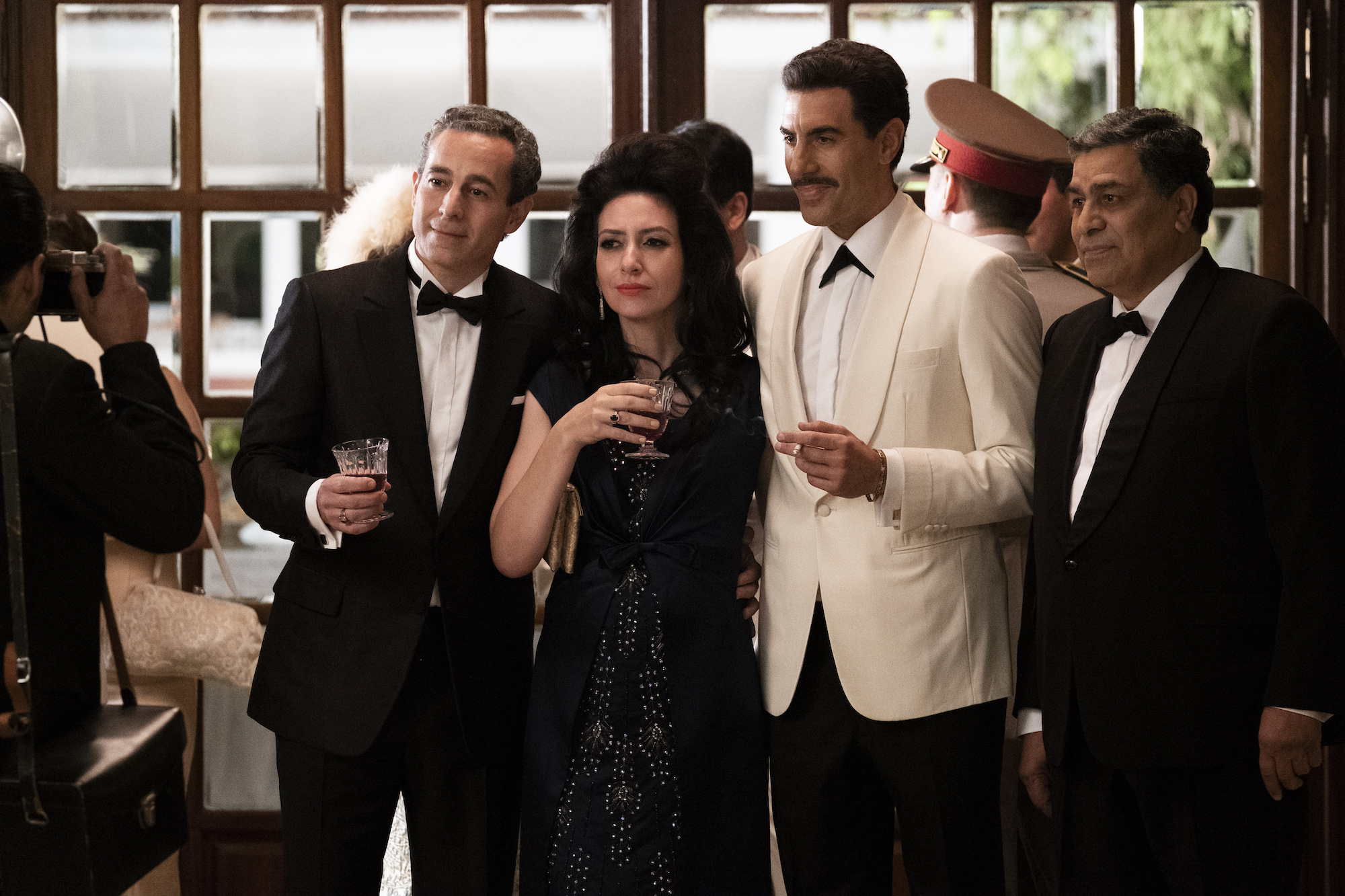The second I had a moment last Friday, I raced to my computer to watch Netflix’s new limited series, The Spy. I’m a film and television critic, so getting excited about new shows isn’t unusual for me, but this felt different. I’d been waiting with bated breath for the series since it was first announced in April of 2018. As I sat down to watch, I realized I was overly personally invested in the show. Not because I just wanted a show that I was excited for to do well, but because I felt I had a personal stake in it.
Let me back up. The Spy is about Eli Cohen (played brilliantly by Sacha Baron Cohen), Israel’s most famous spy that infiltrated Syria in the ‘60s and was eventually caught and executed by the Syrian government. (I’m not spoiling anything. Besides for the fact that this is decades old history, it’s also revealed within the first few minutes of the show.) Why do I feel a personal connection to Eli Cohen? Because my ancestors, like his parents — Eli grew up in Egypt — were Jews from Aleppo, Syria. We have the same heritage.
What does this mean for my experience watching a show about him? Everything.
Being from the Middle East means that Eli was a Sephardi Jew, and so the show, so grounded in portraying Eli’s family, has Sephardi culture on display. There aren’t a lot of Jewish characters on television. This may be surprising, considering Hollywood is full of Jewish filmmakers, but it’s true. And when there is a Jewish character, they’re often only Jewish in name, not in practice. When Jewish characters are actually made to be Jewish in practice, however, they rely on cliches. There are ultra-religious Jews with their “backwards ways” on display (especially in procedurals, like doctor or detective shows, or the infamous film, Disobedience). Or, Jews are caricatures.
The latter is true even in shows championed by the Jewish community, like The Marvelous Mrs. Maisel. To be fair, I love Mrs. Maisel, but there’s no doubt that it often falls into stereotypes about loud, rich Jews who always bring food with them everywhere they go. And despite the fact that most of the characters are Jewish, most of the main cast aren’t — another surprising trend considering Hollywood is also full of Jewish actors.
A lot of these are well known trends in the Jewish community. We’re used to it, if not happy about it. But there’s another aspect to this: The Jews on display in pop culture are almost always Ashkenazi, meaning of European descent. This isn’t surprising. There are simply way more Ashkenazi Jews in existence, but what bothers me is that most of the world doesn’t even know that Sephardi Jews exist. They think all Jews are European. They have no idea that hundreds of thousands of Jews used to live in countries across the Middle East, and were forced to flee due to intense persecution by these countries following the establishment of the State of Israel. They don’t know we exist, and so they are certainly not making movies and TV shows about us.
Except for The Spy. One of the first things we learn about Eli when the Mossad agents are reading his file is that he had to smuggle his family out of Egypt because things had gotten so bad for Jews there, and after he did, he stayed for years to help smuggle other Jews out, too. This is a familiar story for Middle Eastern Jews. My own community in Brooklyn worked very hard to help get Jews out of Syria when it all became unbearable. (My family in particular was spared this, having immigrated to America much earlier, for the same reason Eli’s family left Syria for Egypt, which was economic hardship.) Right there from the jump, Sephardi heritage is recognized.
The first time the word “Sephardic” is used in the show is in episode 2, when Eli’s handler, Dan Peleg (Noah Emmerich in a familiar role) visits Eli’s wife, Nadia (Homeland’s Hadar Ratzon Rotem), because he feels guilty about what he’s putting them through. While he’s there, she insists that he stay and eat. “I’m a Sephardic woman,” she says. “I’m not going to let you go home unfed.” My first instinct at this was to laugh. I was raised by Sephardi women, none of whom would ever let a guest leave without trying to feed them either. My second thought was that this was the first time I think I have ever heard the word “Sephardic” said on screen. My third was to wonder whether people watching this show, who are outside of the Jewish community, even understand what the word “Sephardic” means. Did they just sit there puzzled when she says this line in the scene?
This is important, because the show is not just another Israeli show that doesn’t get far outside of the Jewish community (nothing against Israeli shows, many of them are wonderful). It is a mainstream, prestige TV series, covered by global outlets, and on the world’s main entertainment stage. If people didn’t know that Sephardi Jews existed before, they certainly do now.
Before Eli is employed by the Mossad, we get a glimpse of how he and Nadia try to navigate Israeli life as outsiders, immigrants. The people around them are mostly very white European Jews who are far more established in the young state, and Eli in particular feels out of place, wondering if the couple who employ his wife only invited them to their party to add some exotic color. Indeed, the first episode is titled “The Immigrant,” directly speaking to how out of place Eli feels in his new homeland, but also to that desire to prove himself and his worth.
My first time hearing the name Eli Cohen was not with the announcement of this show. He’s a legend in my community. So when the show dropped on Friday, almost everyone I knew was sitting down to watch it. Finally, there was a show about us. I sat tensed, waiting to see how it would portray Jews, how it would portray Israel, and how it would portray Sephardis. But I needn’t have worried. The show had done its homework on all of it, taking the subject matter seriously (even the accents are the best Israeli accents I’ve ever seen on TV — the worst is probably Cote de Pablo’s turn as Ziva on NCIS).
What’s more, the show took the extra step (which isn’t really so extra at all), and cast Jewish actors for its Jewish characters. As the end credits rolled on the last episode, I felt a great release of emotion. The show had not only lived up to the extremely high expectations I put on it, but exceeded them. For the first time, as a Sephardi Jew, I felt seen by the world.



